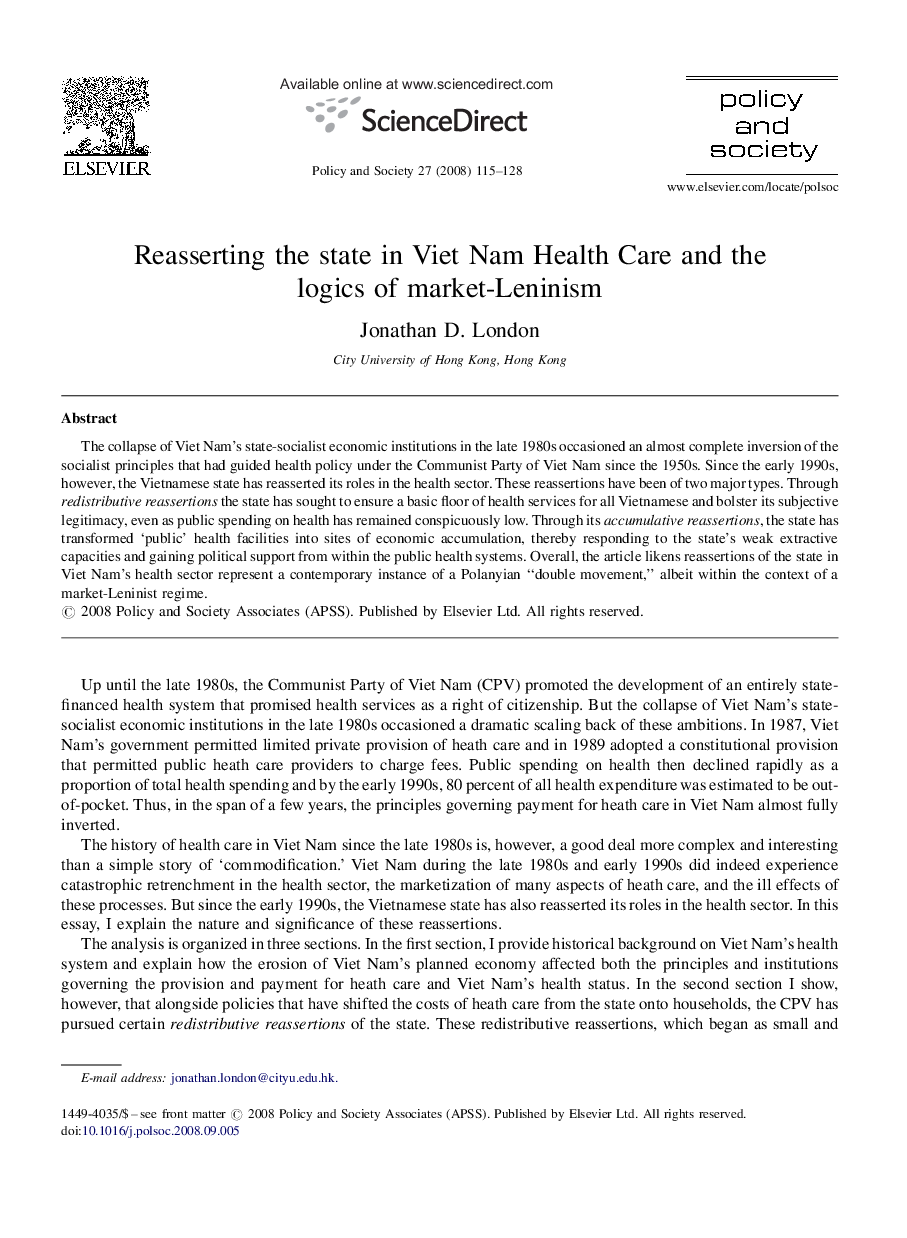| Article ID | Journal | Published Year | Pages | File Type |
|---|---|---|---|---|
| 1061635 | Policy and Society | 2008 | 14 Pages |
Abstract
The collapse of Viet Nam's state-socialist economic institutions in the late 1980s occasioned an almost complete inversion of the socialist principles that had guided health policy under the Communist Party of Viet Nam since the 1950s. Since the early 1990s, however, the Vietnamese state has reasserted its roles in the health sector. These reassertions have been of two major types. Through redistributive reassertions the state has sought to ensure a basic floor of health services for all Vietnamese and bolster its subjective legitimacy, even as public spending on health has remained conspicuously low. Through its accumulative reassertions, the state has transformed 'public' health facilities into sites of economic accumulation, thereby responding to the state's weak extractive capacities and gaining political support from within the public health systems. Overall, the article likens reassertions of the state in Viet Nam's health sector represent a contemporary instance of a Polanyian “double movement,” albeit within the context of a market-Leninist regime.
Related Topics
Social Sciences and Humanities
Social Sciences
Geography, Planning and Development
Authors
Jonathan D. London,
